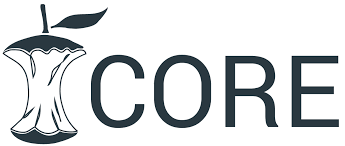KEKUATAN MAHASISWA BERWIRAUSAHA: KASUS DI UNIVERSITAS PADJADJARAN
Abstrak
Penelitian ini berjudul “Kekuatan Mahasiswa Berwirausaha: Kasus di Universitas Padjadjaran”. Fenomena saat ini menunjukkan bahwa tingkat pendidikan yang tinggi belum menjamin seseorang dapat memperoleh pekerjaan dengan mudah. Data statistik (Badan Pusat Statistik, 2017) mencatat bahwa sebanyak 618.758 lulusan universitas di Indonesia yang belum memiliki pekerjaan tetap. Berwirausaha sejak mahasiswa menjadi salah satu alternatif alternatif, sekaligus menunjukkan potensi kekuatan mahasiswa dalam menghadapi persoalan tersebut. Dalam merespon potensi berwirausaha di kalangan mahasiswa, beragam program telah ditawarkan oleh Pemerintah melalui Kementrian Riset dan Pendidikan Tinggi untuk mendorong mahasiswa berwirausaha dapat terus berkembang baik. Populasi dalam penelitian ini adalah mahasiswa yang terdaftar aktif sebagai mahasiswa Universitas Padjadjaran dan berwirausaha dalam rentang waktu 1-3 tahun. Metode penelitian deskriptif dengan pendekatan kuantitatif, serta dengan pengumpulan data menggunakan kuisioner, observasi, dan studi kepustakaan. Analisis data dilakukan melalui proses penyuntingan, pengkodean, dan tabulasi data, serta interpretasi data dan display. Hasil penelitian ini menunjukkan bahwa kekuatan mahasiswa berwirausaha di Universitas Padjadjaran memiliki potensi kekuatan dan peluang usaha yang termasuk dalam kategori tinggi. Pendampingan berkesinambungan melalui workshop-workshop pada mahasiswa berwirausaha perlu secara serius dilakukan oleh pihak perguruan tinggi, yang bermitra dengan pelaku-pelaku usaha, baik swasta maupun pemerintah. Agar usaha yang telah dirintis oleh para mahasiswa tersebut dapat sinambung setelah mereka lulus kuliah.
This research is entitled "The Strength of Entrepreneurial Students: Cases in Padjadjaran University". The current phenomenon shows that a high level of education does not guarantee that someone can get a job easily. Statistical data (Central Bureau of Statistics, 2017) notes that 618,758 university graduates in Indonesia do not have permanent employment. Entrepreneurship since students become one alternative alternative, as well as showing the potential strength of students in facing the problem. In responding to the potential of entrepreneurship among students, various programs have been offered by the Government through the Ministry of Research and Higher Education to encourage entrepreneurship students to continue to grow well. The population in this study are students who are enrolled as active students of Padjadjaran University and entrepreneurship within the span of 1-3 years. Descriptive research method with a quantitative approach, and by collecting data using questionnaires, observation, and literature study. Data analysis is done through the process of editing, coding, and data tabulation, as well as data interpretation and display. The results of this study indicate that the strength of entrepreneurial students at Padjadjaran University has the potential strength and business opportunities that fall into the high category. Continuous mentoring through student workshops on entrepreneurship needs to be seriously undertaken by the universities, in partnership with business actors, both private and public. So that the efforts that have been initiated by the students can continue after they graduate from college.
Kata Kunci
Teks Lengkap:
PDFReferensi
Daftar Pustaka
Buku
Ahmadi.2009. Psikologi Umum. Jakarta: Rieka Cipta.
Anwar, Yesmil., & Adang. 2013. Sosiologi untuk Universitas. Bandung : PT Refika Aditama.
Barker, Robert L. 1995. The social work dictionary (3rd ed.). Washington, DC : NASW Press.
Berg, I. K., & Kelly, S. 2000. Building solutions in child protective services. New York: Norton.
Bart,Smet. 1994. Psikologi Kesehatan. Jakarta : PT. Gramedia Widiasarna Indonesia.
Buchari Alma. 2004. Manajemen Pemasaran dan Pemasaran Jasa Edisi Revisi. Bandung: Penerbit CV. Alfabeta.
Chaplin. J.P. 2002. Kamus lengkap psikologi. Cetakan Keenam. Penerjemah. : Kartiko, K. Jakarta : PT. Raja Grafika Persada.
Ciputra. 2008. Entrepreneurship Mengubah Masa Depan Bangsa. Jakarta: PT Elex Media Komputindo.
Cummins, L., Sevel, J. & Pedrick, L. 2006. Social Work Skills Demonstrated : Beginning Direct Practice. Boston : Pearson Education, Inc.
Departemen Pendidikan Nasional. 2002. Kamus Besar Bahasa Indonesia. Jakarta : Balai Pustaka.
Douglass, R.W. 1992. Forest Recreation. New York : Pergamon Press.
Friedman, M. 2010. Buku Ajar Keperawatan keluarga : Riset, Teori, dan Praktek. Edisi ke-5. Jakarta: EGC.
Gaspersz, Vincent (Diterjemahkan oleh Sutanto). 2003. Manajemen Bisnis Total (Total Quality Management). Jakarta : PT. Gramedia Pustaka Utama.
Glasser, William. 2015. The Identity Society. Newyork : Harper Collins.
Graybeal, C T., Moore, V L. & Cohen, M B. 1995. The Transformation Of A Social Work Program: A Narrative Of Liberation. Cleveland State University.
Hammond, Wayne. 2010. Principles of Strength-Based Practice. Resiliency Initiatives.
Hartaji, Damar A. 2012. Motivasi Berprestasi Pada Mahasiswa yang Berkuliah Dengan Jurusan Pilihan Orangtua. Fakultas Psikologi Universitas Gunadarma. (tidak diterbitkan).
Hasbullah. 1999.Dasar-dasar Ilmu Pendidikan. Jakarta :PT.Raja Grafindo Persada.
Hepworth, D.H., & Larsen, J.A. 1986. Direct Social Work Practice : Theory and Practice. Belmont.CA : Dorsey.
Hurlock, Elizabeth B. 1978. Perkembangan Anak: Jakarta: Penerbit Erlangga.
Jaya, Mardi Arya dkk. 2017. Analisis Faktor Keberhasilan SDM Startup Yang Ada Di Yogyakarta. Fakultas Teknik Universitas Muria Kudus.
Kartasapoetra. 1987. Pengantar Ekonomi Produksi Pertanian. Jakarta : Bina Aksara..
Kasmir. 2013. Kewirausahaan-Edisis Revisi. Jakarta: PT Rajagrafindo Persada
Kirk, S. and Kutchins, H. 1992. The Selling of DSM : The Rhetoric of science in psychiatry. Newyork : Aldine de Gruyter.
Keputusan Menteri Koperasi dan Pembinaan Pengusahan Kecil Nomor 961/KEP/M/XI/1995
Kertajaya, Hermawan. 2008. Arti komunitas. Jakarta : Gramedia Pustaka.
Ketut, Dewa. 1993. Psikologi Pemilihan Karir. Jakarta: P.T Rineka Cipta.
Lahey, B. 2004. Psychology An Introduction (8th ed.). University of Chicago: McGraw Hill
Mondy, R.W., R.M. Noe, dan S.R. Premeaux. 1999. Human Resource Management. 7th edition. New Jersey: Prentice-Hall, Inc
Nurcahyo, Heru. 2008. Ilmu Kesehatan: Untuk Sekolah Menengah Kejuruan. Jakarta: Direktorat Pembinaan SMK Direktorat Jenderal Manajemen Pendidikan Dasar dan Menengah.
Raharjo, ST. 2016. Asesmen & Wawancara dalam Praktik Pekerjaan Sosial dan Kesejahteraan Sosial. Sumedang : Unpad Press.
__________. 2015. Keterampilan Pekerjaan Sosial, Dasar dasar. Bandung: Unpad Press
___________. 2015. Dasar Pengetahuan Pekerjaan Sosial. Bandung: Unpad Press
Roebuck, Maryann. 2007. The Strength-Based Approach : Philosophy and Principles for practice.
Sarafino, E. P. 1997. Health Psychology: Biosychosocial Interactions. New York: John Wiley & Sons . Inc.
Semiawan, Conny. 1984. Memupuk Bakat dan Kreativitas Siswa Sekolah Menengah. Jakarta: Gramedia.
Slameto. 2010. Belajar dan Faktor-Faktor Yang Mempengaruhinya. Jakarta : Rineka Cipta.
Spradley, James Phillip., & David W. McCurdy. 1975. Anthropology: The Cultural Perspective Wiley. University of California
Siporin, Max. 1975. Introduction to Social Work Practice. New York : MacMillan Publishing Co.
Siswoyo, Dwi dkk. 2007. Ilmu Pendidikan. Yogyakarta: UNY Press.
Snyder, C. R. 1994. The psychology of hope: You can get there from here. New York: Free Press.
Soeitoe, Samuel. 1982. Psikologi Pendidikan. Jakarta: Lembaga Penerbit Fakultas Ekonomi Universitas Indonesia.
Solihin, Ismail. 2012. Manajemen Strategik. Jakarta : Penerbit Erlangga.
Stuart, Graeme. 2012. What is Strengths Perspective. Sustaining Community.
Sugiyono. 2010. Metode Penelitian Pendidikan Pendekatan Kuantitatif, kualitatif, dan R&D. Bandung: Alfabeta.
Sulistyowati, Endah. 2012. Implementasi Kurikulum Pendidikan Karakter. Yogyakarta : Citra AjiParama.
Surakhmad, Winarno. 1998. Metode Penelitian. Jakarta : Penerbit Graha Indonesia.
Suryana, Yuyus., & Bayu, Kartib. 2010. Kewirausahaan: Pendekatan Karakteristik Wirausahawan Sukses. Jakarta: Kencana Prenada Media Group.
Sutawidjaja, Sudradjat. 2002. Metode Penarikan Sampel dan Penyusunan Skala. Fakultas Pertanian UNPAD. Jatinangor
Suwarno, S. W., & Meinarno, E. A. 2009. Psikologi Sosial. Jakarta: Penerbit Salemba Humanika.
Wibhawa, Budhi., Santoso T.Raharjo dan Meilany Budiarti S. 2010. Dasar-dasar Pekerjaan Sosial. Bandung : Widya Padjadjaran.
Zastrow, H. C. 1999. The practice of social work. USA : Brooks/Cole Publishing Company.
Jurnal
Cowger, Charles D. 1994. “Assessing Client Strength : Clinical Assessment for Client Empowerment”.
Graybeal, Clay T. 2001. Strengths-Based Social Work Assessment: Transforming the Dominant Paradigm. Families in Society: The Journal of Contemporary Social Services: 2001, Vol. 82, No. 3, pp. 233-242.
Handono. 2013. Hubungan Antara Penyesuaian Diri Dan Dukungan Sosial Terhadap Stres Lingkungan Pada Santri Baru Vol 1, No 2 . Emphaty Jurnal Fakultas Psikologi.
Rankin, Pedro. 2006. Jurnal Edisi 14 “Exploring and Describing the Strength/Empowerment Perspective in Social Work”. South Africa.
Saleebey, D. 2006. Introduction: Power in the People. In D. Saleebey (4th ed), The Strengths Perspective in Social Work Practice (pp.1-24). Boston: Allyn and Bacon.
Scheier, M. F., & Carver, C. S. 1985. Optimism, coping, and health: Assessment and implications of generalized outcome expectancies. Health Psychology, 4(3), 219-247.
Scerra, Natalie. 2011. Strength-Based Practice, The Evidence, a Discussion Paper, Research-Paper July 2011, Uniting Care Children, Young People, and Families. New South Wales.
Sousa, L., Ribeiro., C.& Rodrigues, S. 2006. Intervention with Multi-Problem Poor Clients: Toward A Strengths-Focused Perspective. Journal of Social Work Practice, 20(2), 189-204.
Sumber Elektronik
Almakenzi, S., Bramantoro, A., & Rashideh, W. 2015. A Survivability Model for Saudi ICT Startups. International Journal of Computer Science and Information Technology, 7(2), 145– 157. Melalui http://doi.org/10.5121/ijcsit.2015.7213 [23/6/18].
Badan Pusat Statistik. 2017. Pengangguran Terbuka Menurut Pendidikan Tertinggi yang Ditamatkan 1986 – 2017. Melalui https://www.bps.go.id/statictable/2009/04/16/972/pengangguran-terbuka-menurut-pendidikan-tertinggi-yang-ditamatkan-1986---2017.html [3/6/18].
https://www.bps.go.id/pressrelease/2018/05/07/1484/februari-2018--tingkat-pengangguran-terbuka--tpt--sebesar-5-13-persen--rata-rata-upah-buruh-per-bulan-sebesar-2-65-juta-rupiah.html
Deborah, G. 2012. The Venture Capital Secret: 3 Out of 4 Start-Ups Fail. Melalui https://www.wsj.com/articles [23/6/18].
Ellis, Laura. and Weekse, Elaine. 2011. “Why Use a Strengths-Based Approach Instead of a Deficit-Based Approach?”. Melalui www.mtroyal.ca/cs/groups/public/.../pdf_why_strengths_not_deficit.pdf [19/5/18].
Forsa Unpad. (Tanpa Tahun). Tentang Forsa. Melalui http://forsaunpad.com/about [23/5/18].
Kurniawan, Irine. 2009. Atribut Kewirausahaan dan Perkembangan Industri Usaha Furniture Keluarga Di Jawa Timur, (ON-LINE), http://digilib.petra.ac.id/viewer.php?page=2&submit.x=18&submit.y=17&submit=next&qual=high&submitval=next&fname=/jiunkpe/s1/eman/2009/jiunkpe-nss1-2009-31404189-11855-atribut-chapter2.pdf [27/06/18].
Merdeka.com. 2018. Menaker dorong pengusaha tingkatkan kompetensi SDM Indonesia. Melalui https://www.merdeka.com/uang/menaker-dorong-pengusaha-tingkatkan-kompetensi-sdm-indonesia.html [3/6/18].
Neil, P. 2015. 90% Of Startups Fail: Here‘s What You Need To Know About The 10%. Melalui https://www.forbes.com/sites/neilpatel/2015/01/16/90-of-startups-will-fail-heres-whatyou-need-to-know-about-the-10/#46a5836b6679 [23/6/18].
Saleebey, D. 2006. Strength Perspective in Social Work Practice. Boston. Melalui https://www.wested.org/chks/pdf/strengths_prespective.pdf [19/5/18].
Unpad.ac.id. 2017. Unpad Terima Penghargaan dalam Program Pencetakan Seratus Ribu Wirausaha Baru Jabar. Melalui http://www.unpad.ac.id/2017/03/unpad-raih-penghargaan-dalam-program-pencetakan-seratus-ribu-wirausaha-baru-jabar/ [23/5/18].
--------------. 2015. The Local Enables, Kolaborasi Wirausaha Muda di Unpad. Melalui http://www.unpad.ac.id/2015/03/the-local-enablers-kolaborasi-wirausaha-muda-di-unpad/ [23/5/18].
DOI: https://doi.org/10.24198/share.v8i1.18100
Refbacks
- Saat ini tidak ada refbacks.
This work is licensed under a Creative Commons Attribution 4.0 International License.









21.png)
















